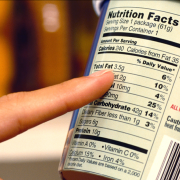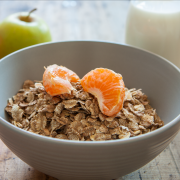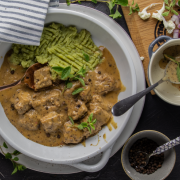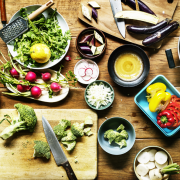 Fighting like soldiers on a battlefield, our immune system is the body’s defence against invading viruses, bacteria, and other illness-causing pathogens. Coronavirus is a virus causing cold and flu symptoms such as fever, coughing and shortness of breath. Through global travel, the outbreak has reached significant proportions in many parts of the globe and has been declared a public health emergency. In South Africa, President Ramaphosa has declared a state of disaster as the number of coronavirus cases in the country reach 61.
Fighting like soldiers on a battlefield, our immune system is the body’s defence against invading viruses, bacteria, and other illness-causing pathogens. Coronavirus is a virus causing cold and flu symptoms such as fever, coughing and shortness of breath. Through global travel, the outbreak has reached significant proportions in many parts of the globe and has been declared a public health emergency. In South Africa, President Ramaphosa has declared a state of disaster as the number of coronavirus cases in the country reach 61.
The good news is that we can influence our body’s ability to fight illness by providing the immune system army with some fighting tools in the form of healthy, immune-boosting foods.
Beetroot
Phytonutrients are powerful food components that maintain and modulate immune function. Some important phytonutrients include polyphenols, resveratrol, flavonoids, isoflavonoids, carotenoids, phytoestrogens, and more. The phytonutrient called betacyanin gives beetroot it’s deep, purple colour, making this veggie a firm favourite for immune boosting. Add some beetroot to your diet with the FitChef Beetroot Soup or Purple Heart and GAP Smoothies for an added immune system boost.
Pineapple
While oranges are renowned for being high in vitamin C, did you know that pineapple, as well as strawberries, mango, paw paw, broccoli and Brussel sprouts have even more vitamin C? Vitamin C is an important vitamin in keeping the immune system strong. However, it’s a misconception that vitamin C prevents us from getting sick. Rather, studies have shown that vitamin C significantly shortens the duration of a cold when you do get sick. Stock up on some FitChef Pine Nibbles for a vitamin-C rich snack. The FitChef Ignite and Revitalise Nurish Juices are made using pineapple.
Yoghurt
Did you know that your gut is home to 65% of the immune system? The bacteria in the gut not only help digest food but also regulate our immune system and protect against invading pathogens that cause disease. For this reason, poor gut health could affect immunity. The live cultures found in fermented foods like yoghurt keep the gut healthy. A healthy gut equals a healthy. immune system. Blend yoghurt into your favourite FitChef Ready-To-Blend Smoothies.
Sweet Potato
Our skin is the first line of defence against bacteria and viruses that enter the body yet is often overlooked as an organ that can provide support to our immune system. To stay healthy, our skin needs vitamin A. The humble sweet potato is rich in beta-carotene, a pro-vitamin that the body converts into vitamin A. FitChef meals made using sweet potato are the Lentil Tomato Breedie and Sweet Potato Mash. You can also up your beta-carotene intake by eating more carrots (FitChef Farmstyle Bobotie with Carrots, Peas and Yellow Rice), butternut (Chicken Tikka with Roasted Vegetables & Butternut) and pumpkin (Beef Goulash with Pumpkin and Spinach and Red Kidney Bean Goulash with Pumpkin & Spinach).
What to Avoid
- The gut plays a large role in our immunity. As much as possible, avoid artificial sweeteners which studies have shown functionally alter the gut microbiome.
- Keep your gut healthy by favouring high fibre starches, such as brown rice, wholewheat pasta, sweet potato, corn, and oats, over refined starches like white bread, pasta and wraps.
- Make olive oil the primary oil in your diet. Olive oil is rich in healthy monounsaturated fats which may reduce inflammation. Limit pro-inflammatory omega-6 rich oils like sunflower oil, corn oil, safflower oil and soybean oil.
- Limit sugar and sugary treats and be especially conscious that these don’t replace immune-boosting fruit and vegetables. Eat more fruits and vegetables which are rich in phytonutrients and antioxidants that protect against and reduce inflammation in the body. Aim for half a plate of salad and/or vegetables with each main meal and include at least two fruits each day.
- Good sleep patterns are important as there is a link between sleep health and immune system function.
- Being moderately active has been shown to improve the functioning of the immune system. However, if training in public places like the gym, be wary to thoroughly wipe down equipment with an alcohol-based sanitiser. Where possible, train at home or outdoors.
- Manage alcohol intake as there is evidence that alcohol consumption could have an effect on our immune response, in a dose-dependent manner.
- Remain well-hydrated to keep the skin and mucous membranes intact to manage the respiratory infections. Opt for filtered water, sparkling water, or caffeine free herbal teas such as Rooibos.
The best way to prevent the spread of the Coronavirus is early detection and quarantining of infected patients and those with a high suspicion of having the virus. Let’s all do our part to manage the spread of Coronavirus by keeping our immune systems ready for action through healthy eating, while following some key tips:
- Keep a distance of at least 1m between yourself and anyone who is coughing or sneezing. Limit hand shaking and hugs.
- If you have fever, cough or difficulty breathing, consult with your doctor. Limit contact with people until you have more clarity on the condition.
- Thorough handwashing with warm soapy water for at least 20 seconds is vital. Use an alcohol-based hand sanitiser when handwashing is not possible.
- Practice good cough hygiene. This means covering your mouth and nose with a tissue or bent elbow when you cough or sneeze. Throw the tissue into a closed bin immediately and wash your hands afterwards.
References
- Galdeano M et al. Role of Probiotics and Functional Foods in Health: Gut Immune Stimulation by Two Probiotic Strains and a Potential Probiotic Yoghurt. Endocrine, Metabolic & Immune Disorders-Drug Targets (Formerly Current Drug Targets - Immune, Endocrine & Metabolic Disorders). 2015;15(1):37-45(9).
- Goral J, Karavitis J, Kovacs EJ. Exposure-dependent effects of ethanol on the innate immune system. Alcohol. 2008;42(4):237-47.
- Gupta C, Prakash D. Phytonutrients as therapeutic agents. Journal of Complementary and Integrative Medicine. 2014;11(3):151-169.
- Hemila H, Chauker E. Vitamin C for preventing and treating the common cold. Cochrane Systematic Review - Intervention Version. 2013. DOI: 10.1002/14651858.CD000980.pub4
- Irwin MR, Opp MR. Sleep Health: Reciprocal Regulation of Sleep and Innate Immunity. Neuropsychopharmacology. 2017;42:29–155.
- Jones AW, Davison G. Chapter 15: Exercise, Immunity, and Illness. Muscle and Exercise Physiology. 2019; 317-344.
- Mayer EA, Tillisch K, Gupta A. Gut/brain axis and the microbiota. Journal of Clinical Investigation. 2015;125(3):926–38.
- Puertollano MA, Puertollano E, Alvarez de Cienfuegos G, de Pablo Martínez MA. Olive oil, immune system and infection. Nutr Hosp. 2010;25(1):1-8.
- Suez J, Zilberman-Schapira G, Segal E, Elinay E. Non-caloric artificial sweeteners and the microbiome: findings and challenges. Gut Microbes. 2015;6:149-155.
- World Health Organisation. Coronavirus disease (COVID-19) advice for the public. Available from: https://www.who.int/emergencies/diseases/novel-coronavirus-2019/advice-for-public/.
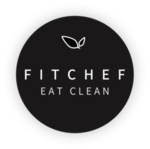
 No added or artificial sugars
No added or artificial sugars The cleanest ingredient labels
The cleanest ingredient labels

